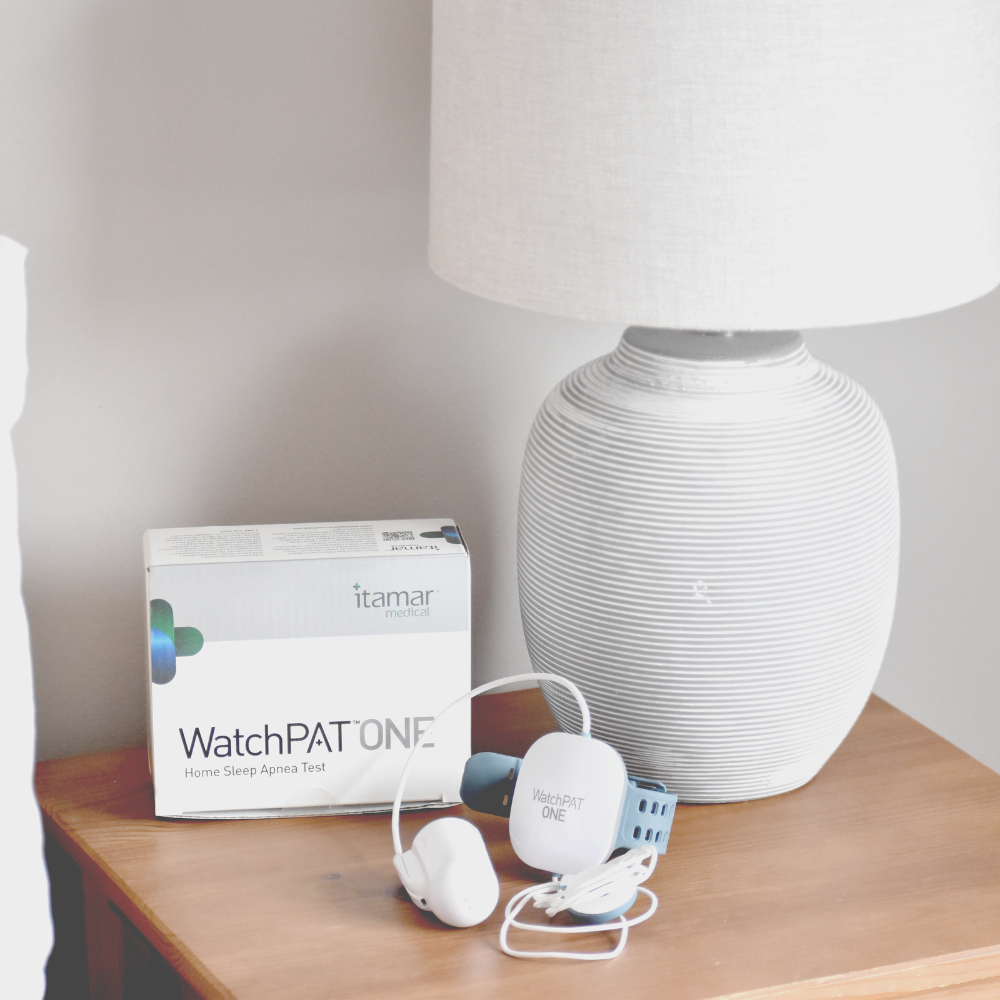Fact Checked
Intus Healthcare’s writers, customer service team, and sleep experts review and ensure this information is accurate.
Last updated on July 1st, 2024 at 02:43 pm
Sleep Apnoea is a serious condition that can have significant health consequences if left untreated. This article explores the critical question, “Can you die from Sleep Apnoea?”. By understanding the potential dangers and health risks associated with leaving the condition untreated we can recognise the importance of seeking diagnosis and treatment to improve overall health.
The Dangers of Untreated Sleep Apnoea
If you or someone you know has Sleep Apnoea, you may have questions about how it affects the body. Although the condition is not uncommon, many people do not know about its link to other health conditions and why getting treatment is important.
Obstructive Sleep Apnoea (OSA) affects millions of people worldwide, from children to adults. It occurs when the airway becomes blocked during sleep, causing breathing to stop and start.
Many people become aware of the condition when they observe a loved one stop breathing in their sleep.
From waking up tired to experiencing brain fog, left untreated, OSA can significantly impact a person’s day-to-day life. It can increase the risk of many health problems, which can contribute to a reduced life expectancy and is closely linked to conditions such as heart and lung disease.
Table of Contents
Fortunately, treating the condition can significantly reduce the risk of these complications and allow you to feel the benefits of quality sleep. Research suggests that around 80-90% of people with Sleep Apnoea do not know they have the condition (1).
This article will explain the health risks linked to Sleep Apnoea and the importance of treatment.
Understanding the Dangers of Sleep Apnoea

The condition becomes dangerous without treatment because it affects breathing, significantly impacting the body’s ability to function correctly. Although it is unlikely for the breathing obstructions alone to cause death directly, leaving the condition untreated increases the risk of other fatal health conditions developing.
Repeated breathing pauses during sleep lead to intermittent hypoxia (low oxygen levels). Low oxygen can cause oxidative stress, which damages cells and tissues and causes other body parts, such as the heart, to work harder. Many studies have linked OSA to an increased risk of fatality from heart-related health issues (2).

Sleep Apnoea Test
Our simple test takes just one night to complete and is assessed by our professional, in-house sleep clinicians.
Your sleep data is analysed quickly, and your results are returned within two working days of taking the test.
When reviewing your sleep data, our clinicians examine your blood oxygen levels, heart rate variability, snoring intensity, and body positions to gain a comprehensive view of your sleep.
20 Ways Untreated Sleep Apnoea Harms Your Health
Short-term and long-term dangers associated with untreated Sleep Apnoea include:
- Liver Disease: Continuous breathing pauses can induce and worsen non-alcoholic fatty liver disease due to the associated metabolic dysfunction such as inflammation and insulin resistance.
- Type 2 Diabetes: Sleep Apnoea disrupts how the body regulates blood sugar levels, increasing the risk of type 2 diabetes.
- Heart Failure: Untreated OSA can cause pulmonary hypertension or right-sided heart failure (RHF). This is because OSA can lead to elevated blood pressure which can lead to the right ventricle becoming too weak to pump enough blood to the lungs. Blood builds up in the veins, and fluid is pushed back into the tissue, causing swelling.
- Stroke: As the body does not receive enough oxygen, leading to cardiovascular strain which can cause stroke, heart attacks and atrial fibrillation.
- COPD: Sleep Apnoea and COPD can occur together, and this can be due to inflammation of the airways and throat muscles.
- Metabolic Syndrome: As oxygen levels drop, oxidative stress and inflammation can occur, disrupting metabolic processes. This can result in insulin resistance, a core component of metabolic syndrome.
- Hormonal Imbalances: OSA can disrupt the normal functioning of the hypothalamic-pituitary-adrenal (HPA) axis, leading to increased production of cortisol, a stress hormone. Chronic elevated cortisol levels can disrupt the balance of other hormones, including testosterone and progesterone.
- Asthma: As breathing stops and starts, it can induce oxidative stress and inflammation in the airway tissues, increasing airway hyperresponsiveness. Chronic inflammation is a factor in the development of asthma, as it makes the airways more sensitive to various triggers.
- Acid Reflux: The upper airway inflammation can irritate the oesophagus, which can cause acid reflux. The breathing disturbances also make you more likely to breathe in harder when breathing restarts, which can cause stomach acid to come up.
- High Blood Pressure: Intermittent hypoxia (repeated low oxygen levels) triggers the release of stress hormones like adrenaline and noradrenaline, which cause blood vessels to constrict and the heart rate to increase. Over time, the repeated oxygen fluctuations can raise blood pressure during sleep.
- Abnormal Cholesterol: Sleep deprivation affects leptin and resistin in the blood, which can influence cholesterol, as these hormones help regulate lipid metabolism.
- Anxiety and Depression: Lack of sleep affects how the brain functions, and poor sleep is closely related to mental health conditions. Reduced sleep reduces the production of mood-regulating hormones such as dopamine and serotonin, which can lead to anxiety and depression.
- Problems concentrating: Reduced sleep can make it difficult to concentrate at work and impact the brain’s ability to consolidate memories, leading to forgetfulness.
- Headaches: The reduced oxygen intake during sleep can cause morning headaches, which may progressively become migraines.
- Accidents: Reduced sleep quality causes daytime sleepiness, which increases the risk of accidents. Fatigue is one of the most common reasons for road accidents.
- Problems After Surgery: Untreated OSA increases the risk of post-surgery complications. For example, patients are at higher risk of experiencing cardiovascular complications such as myocardial infarction, stroke, and arrhythmias during and after surgery.
- Weight Gain: As the body is exhausted from lack of sleep, it commonly decreases activity and metabolism, which contributes to weight gain.
- Weakened Immune System: Quality sleep is important for the immune system, as it is when the body restores and recharges itself. Frequent awakenings can make it harder for the immune system to fight off threats.
- Daytime Sleepiness: Constant breathing interruptions lead to fragmented sleep, resulting in daytime sleepiness, which can affect all aspects of life.
- Nocturia: Untreated OSA can stimulate the release of hormones that promote the kidneys’ excretion of sodium and water. Elevated levels can lead to increased urine production during the night.
OSA can affect a person’s day-to-day life, making simple tasks difficult due to the lack of sleep. How it affects the body varies from person to person.
The severity of OSA can play a role in the risk of developing other health conditions. Research has found that those with severe, untreated OSA are at a higher risk of mortality (3). This is because more severe cases are characterised by more frequent breathing obstructions during sleep.
Symptoms of OSA
One of the most common symptoms associated with OSA is chronic snoring. Other symptoms include:
- Fatigue
- Choking in sleep
- Morning headaches
There are many other symptoms of Sleep Apnoea that can be explored on our website.
Recognising the signs is the first step towards understanding your sleep so you can begin to solve the problem.
When to Get Tested for OSA
If you are struggling with your sleep and believe it could be due to Sleep Apnoea, the next step is to complete a Home Sleep Test.
Treatment Options
The various treatment options depend on the severity of the condition and type. The most common treatments include:
CPAP Therapy
Continuous Positive Airway Pressure (CPAP). This is the gold standard treatment method for Sleep Apnoea. The machine provides consistent airflow to keep the airway open to prevent any obstruction. The machine delivers the air pressure to you through a mask; we offer a wide selection of nasal and full-face styles.
Mandibular Advancement Devices
A Mandibular Device, also known as a mouthguard, gently pulls the lower jaw forward to prevent the airway from closing.
Positional Therapy
Positional Sleep Therapy is a non-invasive treatment for those who snore and those with Positional Obstructive Sleep Apnoea (POSA). For example, the Somnibel, which is a small forehead device that vibrates when the user rolls onto their back, encourages the user to stay on their side and keeps the airway open.
Lifestyle changes to help OSA
Making certain lifestyle changes may also help manage the sleep condition. These changes can include:
- Improving your sleep hygiene by implementing a better sleep routine.
- Gaining regular physical exercise or losing weight if necessary.
- Eating a balanced diet with sleep-promoting and healthy foods, these may include bananas, seafood, and broccoli.
- Limit your consumption of stimulants such as alcohol and caffeine.
- Quitting smoking.
- Treating nasal and sinus discomfort using a nasal irrigator, as congestion can make breathing harder.
- If your symptoms are only present when sleeping on your back, try to sleep on your side.
Articles you may find helpful:
Smoking and Its Impact on Sleep Apnoea
Summary
While Sleep Apnoea is linked to other conditions getting tested and treating Sleep Apnoea can help to resolve many of these risks.
If you have already been diagnosed and are struggling with keeping up with your treatment, please speak with your doctor or reach out to us to help you get back on track.
References
- Chen, L., Pivetta, B., Nagappa, M. et al. Validation of the STOP-Bang questionnaire for screening of obstructive sleep apnea in the general population and commercial drivers: a systematic review and meta-analysis. Available at: https://link.springer.com/article/10.1007/s11325-021-02299-y. Accessed: 03.06.2024
- Mehra, R. (2021). Obstructive sleep apnea and cardiovascular disease in adults. Available at: https://www.uptodate.com/contents/obstructive-sleep-apnea-and-cardiovascular-disease-in-adults. Accessed: 29.05.2024
- Yaggi HK, Concato J, Kernan WN, Lichtman JH, Brass LM, Mohsenin V. (2005) Obstructive sleep apnea as a risk factor for stroke and death. Available at: https://www.pubmed.ncbi.nlm.nih.gov/16282178/. Accessed: 29.05.2024






